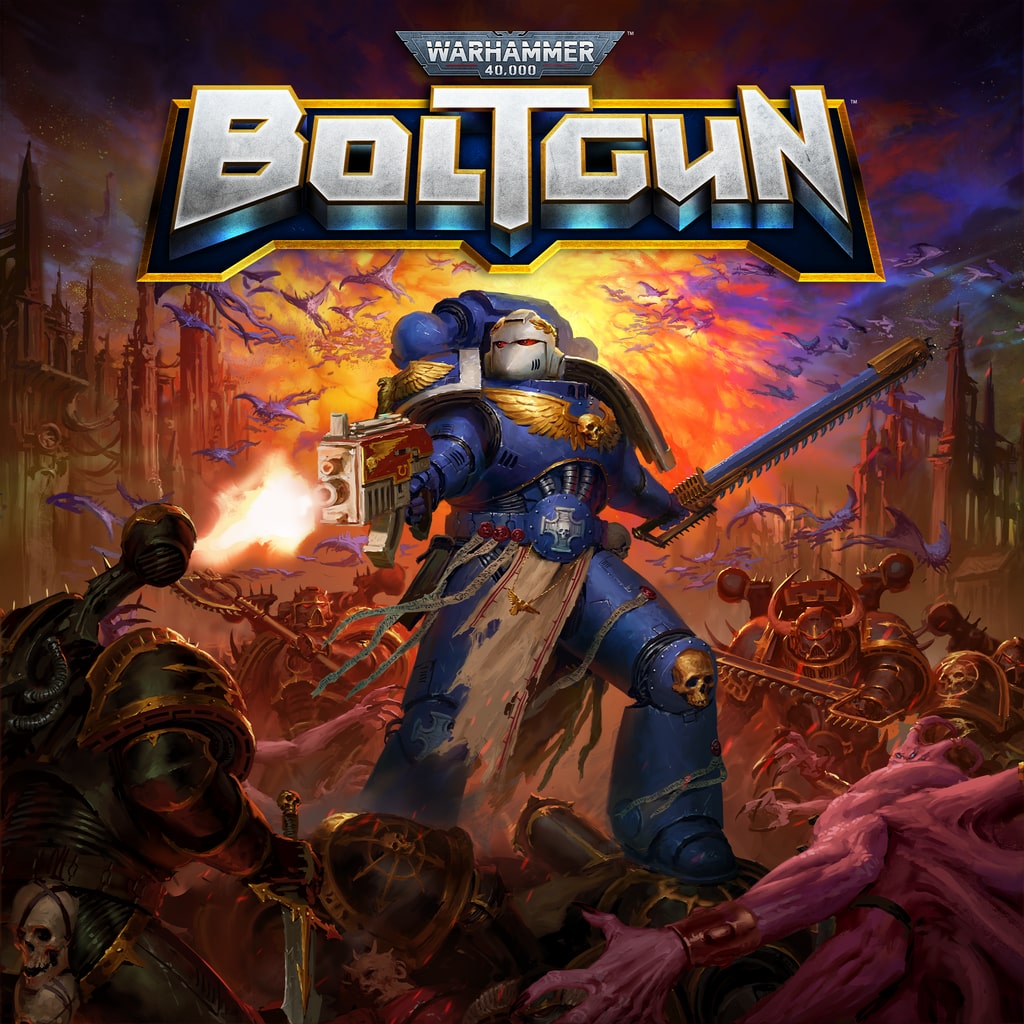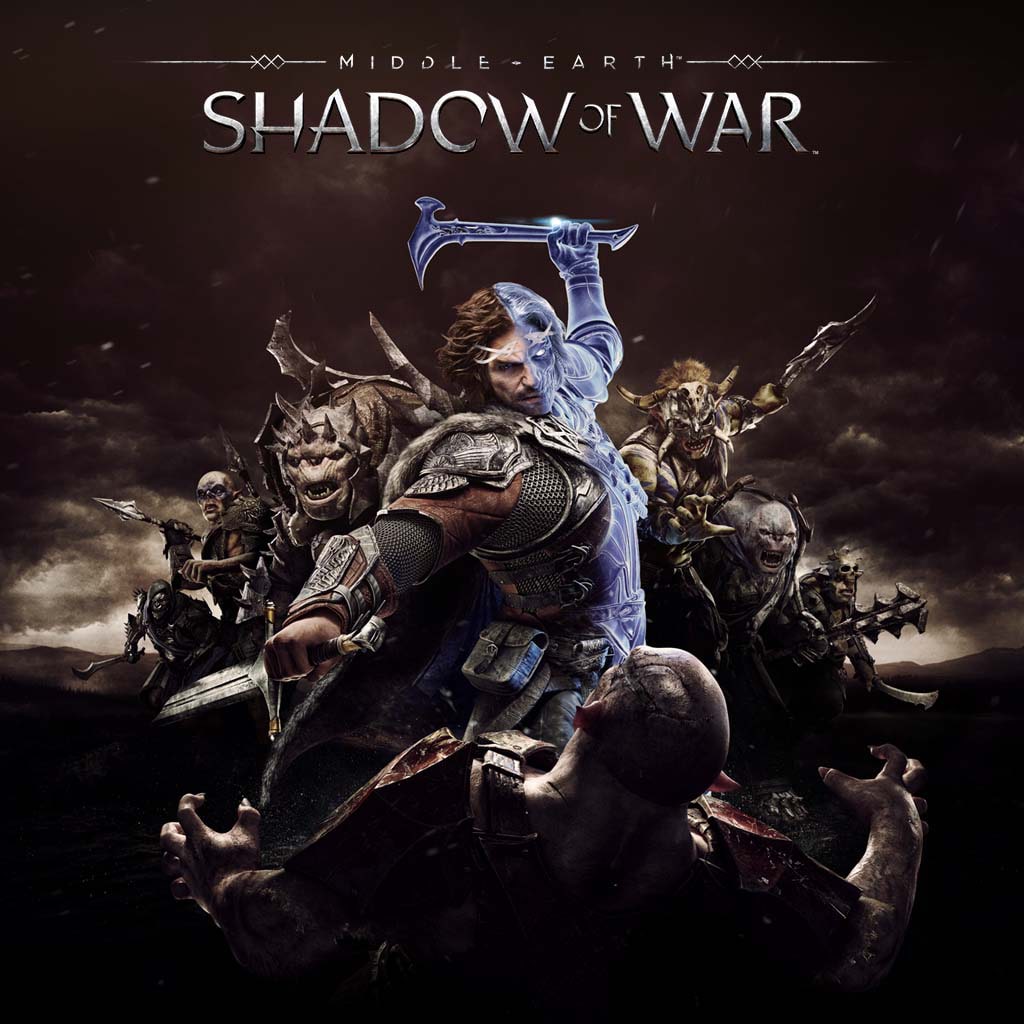Brands
I’ve dipped my toes into two licensed games recently, Middle-earth: Shadow of War and Warhammer 40,000: Boltgun. They exist in a similar space to me, competently made games with awkward or painful elements, moments that feel far too jerky and unrefined. Fun enough, but unremarkable on the whole (yes, even the vaunted Nemesis system does not rise to the level of “remarked” - it’s fine, a point of interest, not as special as you might like, shouldn’t be patented). What particularly stands out, to me, is the way the license layers on top of these games, altering my personal reception of them in odd ways.
Licensed games are nothing new, although I feel I’ve played
relatively few. A few Star Wars ones, like most gamers, some big names
like Fist of the North Star, alongside smaller IP like Battle Chasers.
By and large, though, the games I play come from video game franchises. Video
games are my primary entertainment medium, and I’m generally disinterested in
the compromises that have to be made during licensing productions. Like many, I
enjoyed both Arkham Asylum and Arkham City, breaths of fresh air
as they both were. But that was partly because they were very good video games,
which happened to also be very good entries in the wider Batman (non-)canon.
Besides, who doesn’t like Batman? More recent superhero fare, such as Marvel’s
Spider-Man, turns me off. I don’t like superheroes anymore, and I’d rather
play a more original Insomniac game. These are overwhelming successes, in terms
of both general audiences and review scores. Companies seem to have gotten
better about licensed releases and coordination, helped by the tendency to
divorce video game releases from movie release dates, even if they might follow
the lead of their more mainstream adaptations. High-profile throwback disasters
like the recent Gollum are an example that it’s still hard. Making games
is hard enough. Operating within the constraints of a license - and the
publisher demands that accompany it - only adds to the difficulties of
production. So how do these two games handle their license?
Shadow of War, like Shadow of Mordor before
it, handles its franchise poorly. This time, not content with theming the game
around a rather un-Tolkien-like pair of protagonists, although to give the game
credit it is critical of their path. The game isn’t afraid to show off that
this is a Lord of the Rings game. We have the Ringwraiths and Palantirs
and many other things. Some characters are oddly cast in their roles. Right
from the start, we’re introduced to the suddenly sexy Shelob. No, I haven’t
developed a spider fetish; instead, the
developers chose to portray her as a human-looking woman who sometimes
transforms into her spider form. I don’t think that was a good choice for
the franchise. There’s a lot that’s been added here that clashes, whether for
lore or gameplay reasons. Like I said at the top, it’s an uncomfortable game to
play. Orcs, less fun to fight here than in Mordor, carry some of the
same charm they did. Their personalities are certainly expanded upon compared
to the flashes in Peter Jackson’s films, but those felt more appropriate to the
vision of them as elves representing the evils and corruption of war.
Dominating them with Celebrimbor’s hand feels thematically wrong, and their
personalities remain cheerfully murderous throughout. It’s overall too cartoony
for the fantasy of Tolkien, trading gravitas for sleazy charm. I’d like to
think that the clamouring for the Nemesis system to spread through the industry
is the result of not just its inherent appeal, but also the failure to put it
in a franchise where it fits thematically. I’m not a huge Lord of the Rings fan,
but I enjoy and respect it well enough, especially the movies. All the various
moments of violence and titillation and naked power feel wrong in this world.
Every openly LotR element felt jarring, to me, like the wrong paint had
been applied over a solid foundation. I could have happily stabbed and slashed
and shot my way through a fantasy world of gravewalkers and orcs and ghostly
knights and a dark lord. I can’t do it so comfortably when people keep talking
about Sauron and Galadriel and Ringwraiths. I know those characters, and how
they should be portrayed. This never felt the right way to portray them.
I know a hell of a lot less about Warhammer 40,000. I
do know that Boltgun portrays a number of elements from the universe,
from accurate Space Marine firearms to helpfully labelled enemies - cultists,
Chaos Space Marines, horrors and plague toads. There’s enough character put
into the player character to feel appropriately Space Mariney for this
experience, at least for someone who doesn’t entirely understand what that
would entail. You feel tough and fast, probably too fast for someone using such
bulky armour. Should a Space Marine really be able to sprint, dash, and
essentially teleport with his slo-mo chainsaw? I kind of doubt it, but it feels
cool. Should a Space Marine be able to carve his way through so many enemy
units? By the rules of the tabletop game, I doubt it - I’m guessing models like
the Lord of Change, a model that would run you a couple hundred, aren’t capable
of being brought down by a single marine. Maybe that’s why the bosses are such
bullet sponges. So this definitely isn’t a translation of the tabletop
experience, and by bringing in such heavy hitters (in such numbers) Boltgun probably
throws off the power curve. I’m guessing all of this, I wouldn’t know. For a
casual passer-by of the franchise, someone who could get into it based on this
experience (alongside the more tactical experience of Mechanicus), I’d
say there’s a lot to like here. Maybe it’s a good 40K game but a bad
portrayal of the world? Can’t say. A lot of fun though, despite its flaws.
I’m struggling with something a little here. Normally, I’d
comfortably roll on and say that franchises are terrible and sequels are stupid
and series are risky. I’d say that we should all be making spiritual successors
and throwing marketing to the wind and taking wild chances. I’d be getting
kicked out of marketing meetings for sure. But there’s something about the use
of the Warhammer 40,000 license in Boltgun that tickled me in
just the right spot. I’ve been on a 40K kick lately, maybe due to
needing easy to consume content as I slowly recover from covid. So, I’ve been
vaguely listening to lore and watching painting videos, checking in on future
video game endeavours, dipped my toes back into Inquisitor - Martyr (not
a good decision there - shockingly, loot games aren’t my thing). Instead of
saying that brands are terrible things for art, I guess I’ll go with a safer
line. Licensed products can be a risk, but sometimes the width of a franchise
elevates it, even when it lacks depth. Lord of the Rings needs its
depth; it’s a rich narrative. 40,000, at least to me, represent the
possibilities of a broad franchise, and that’s what has me hooked for the
moment. I’d love to see some more of the 41st Millenium.
Coda:
I’ve always felt that Middle-earth is an odd world.
Comparisons to New Zealand are obvious, but it hasn’t been the landscapes that
stuck me. Rather, it’s the empty, smalltown vibe that the whole trilogy gives
off. Where the hell do all these people come from? Urban and rural living alike
are almost ignored - if it weren’t for the Prancing Pony in Bree and the civilians
brought to Helms Deep, you could easily fool me into thinking this was a world
where every man, elf, and dwarf outside Hobbiton lives as a warrior. I’ve never
seen Middle-earth as a place of civilisations. The elves are leaving, the men
have nought but a few castles to stand against two tides of conquering death.
It’s a bleak place, at least in the world shown to us in the movies. It doesn’t
help that Theoden is first shown to us in a paltry little village. I suppose Shadow
of War, while it’s ruining so much of the world, at least shows a taste
more of the world of men, even as Celebrimbor promises us it will fall. It’s
nice to know Aragorn will be more than the king of ashes and wilderness.


Comments
Post a Comment